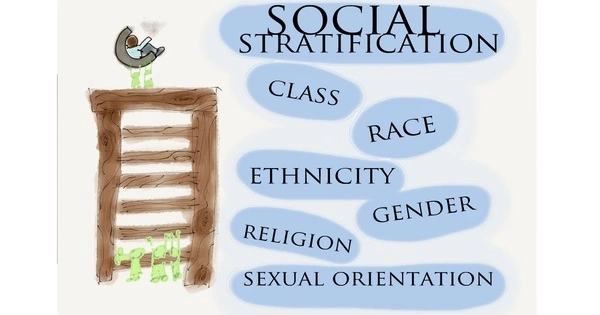Religious stratification is the division or hierarchy of individuals or groups within a society based on their religious beliefs, practices, or affiliations. The division of society into hierarchical layers based on religious beliefs, affiliation, or faith practices is known as religious stratification. It entails categorizing people into different social, economic, or political positions based on their religious identity.
“The reason why religion is apparently to be found in the fact that human society achieves its unity primarily through the possession by its members of certain ultimate values and ends in common,” write Kingsley Davis and Wilbert E. Moore.
Furthermore, Davis and Moore argue that “the role of religious belief and ritual is to supply and reinforce this appearance of reality” that these “certain ultimate values” have. This is one possible explanation for why religion is one of the underlying factors that connect various forms of inequality into a stratification chain.
Religious stratification can manifest in various forms and have different implications in different societies. Here are a few examples:
- Social Hierarchies: Religious affiliation may determine an individual’s social status or access to resources, opportunities, and privileges in some societies. Certain religious groups may be considered more or less important in the social hierarchy, resulting in social inequalities and discrimination.
- Legal and Political Structures: It has the potential to have an impact on legal and political systems, with certain religious groups receiving preferential treatment or holding positions of power and influence. Other religious communities may be marginalized as a result, and their rights and freedoms may be restricted.
- Economic Disparities: It can contribute to economic disparities within a society. Some religious groups may control significant economic resources, leading to economic advantages for their members, while others may face economic disadvantages or limited access to economic opportunities.
- Education and Employment: It can have an impact on educational opportunities as well as employment prospects. Certain religious groups may have better access to quality education or preferential hiring practices, resulting in educational attainment and occupational mobility disparities.
Promoting religious tolerance, understanding, and respect can help to reduce religious stratification and foster more inclusive societies that value diversity and uphold equal rights for people of all faiths.
















